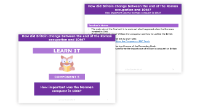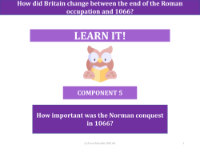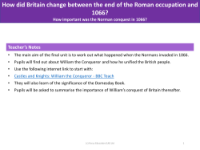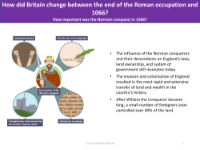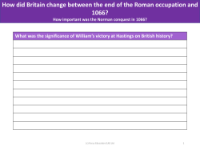The Domesday book
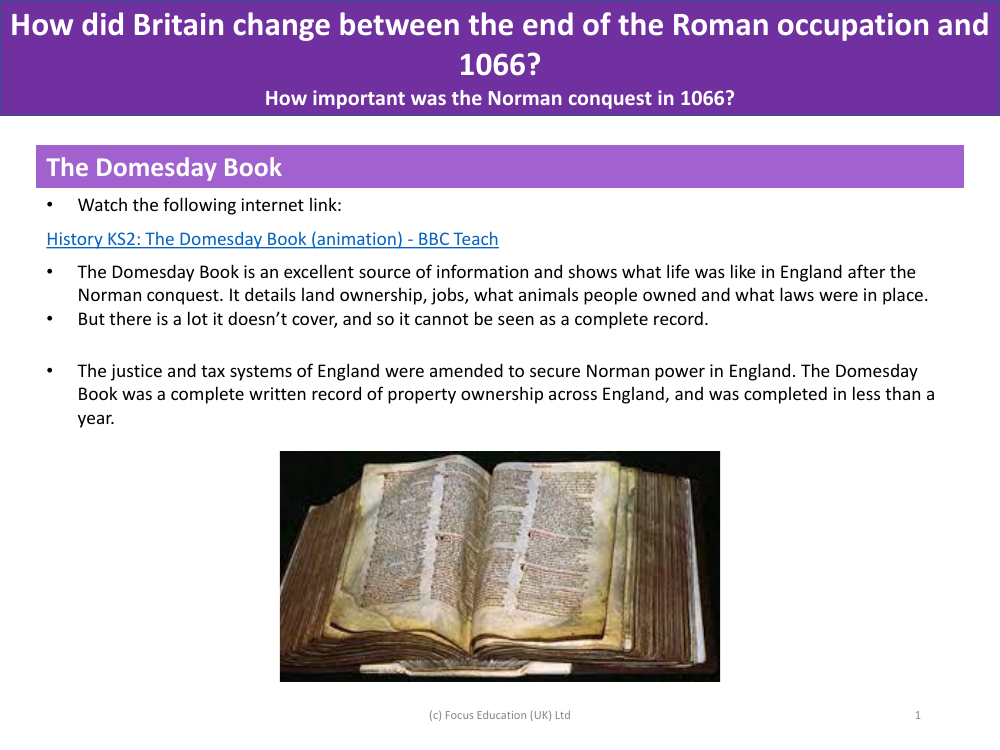
History Resource Description
The Domesday Book stands as a pivotal historical document, offering a detailed glimpse into life in England following the Norman conquest. This extensive survey was commissioned to record land ownership, the professions of the populace, the types of animals owned, and the legal frameworks of the time. It serves as a rich source of information, painting a picture of the societal structure and economic conditions in 11th-century England. However, it's important to note that the Domesday Book is not exhaustive; there are aspects of life and culture during that period that it does not document, and thus it should not be considered a complete historical record.
Aside from its role as an informative resource, the Domesday Book also had significant political implications. It was created as part of the Norman strategy to solidify their control over England. By amending the justice and tax systems, the Normans reinforced their power, and the Domesday Book played a crucial part in this process by providing a comprehensive written account of property ownership. Remarkably, this grand endeavour was completed in less than a year. The book prompts intriguing questions about the changes in Britain from the end of Roman rule to the year 1066, and the profound impact of the Norman conquest on the country's development.

